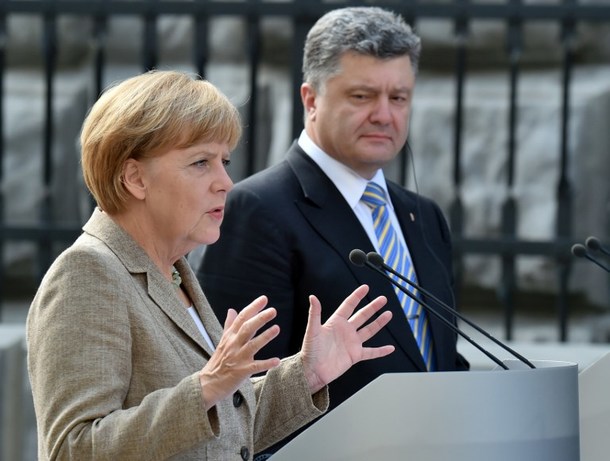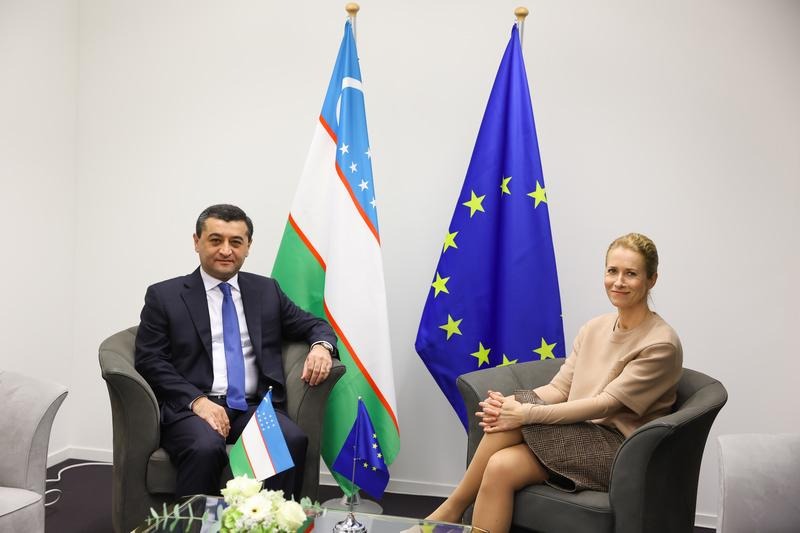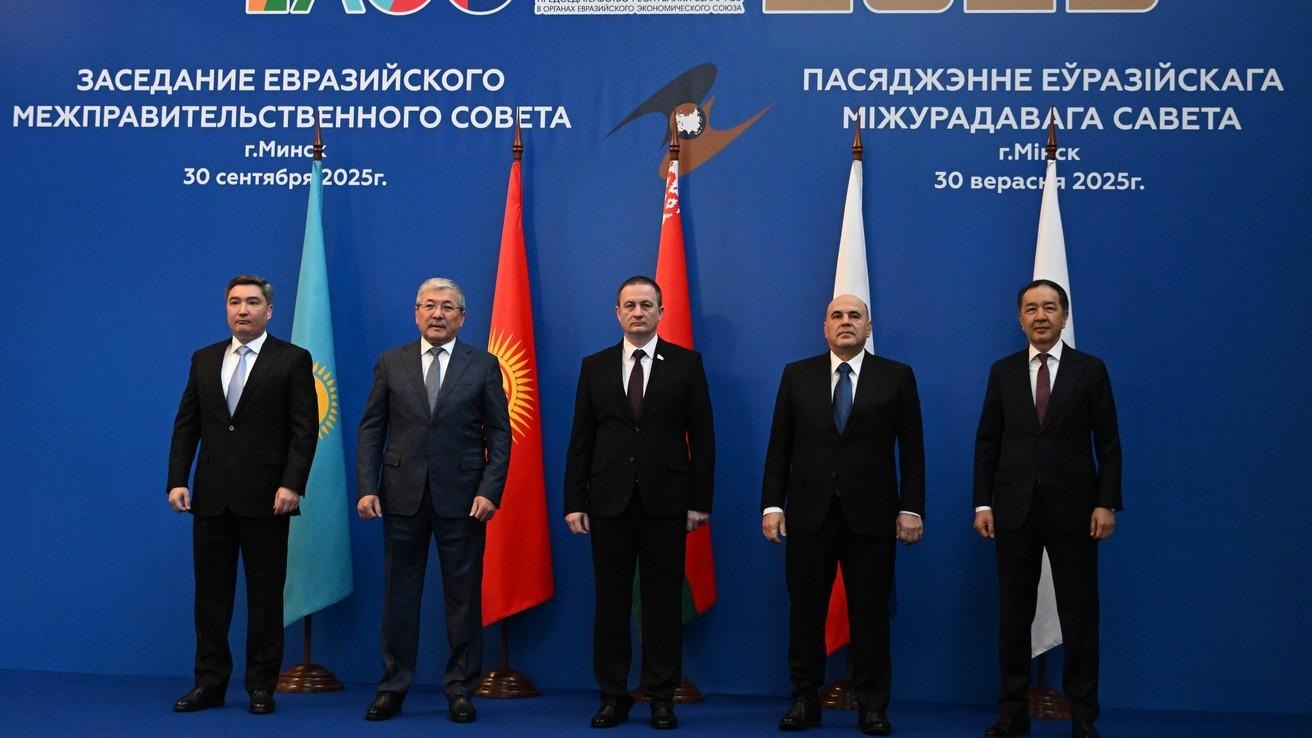
Germany Reconsiders Its Russia Policy in Light of Russia-Ukraine War
Germany Reconsiders Its Russia Policy in Light of Russia-Ukraine War
The German government’s response to Russia’s war against Ukraine—and by extension, Berlin’s assessment of Russia—is undergoing some reconsideration. Moscow has shaken Germany’s “trust” once more by flouting the armistice in Ukraine’s Donbas (eastern region encompassing the provinces of Luhansk and Donetsk). The annexation of Crimea and the hybrid war against Ukraine had undermined that oft-invoked trust toward Russia, but not to the extent of altering Berlin’s Russia-First policy toward Ukraine. The turning point came with Russia’s conventional military intervention in Ukraine in late August and the ongoing sabotage of the armistice agreements to date (see accompanying article).
These recent Russian actions have finally prompted the German government to reassess its policy. Berlin’s previous, complacent assumptions about Russia are now increasingly questioned in the light of Russia’s actions in Ukraine. Chancellor Angela Merkel is publicly encouraging this process. In so doing she marches ahead of the government and ahead of mainstream-pacifist opinion, and she is standing up to major business interests on the issue of economic sanctions. This situation is unusual for Merkel on both counts. Normally she bends to public opinion trends, or catches up with them; and she has long catered to the vested interests of German business in Russia.
Merkel’s latest public speech, delivered in Bratislava, on October 20, summarizes her view of Russia’s actions in Ukraine, to wit: Russia has violated international law, Ukraine’s territorial integrity and sovereignty by annexing Crimea; it destabilized Ukraine’s eastern regions; contested Ukraine’s right as a state to choose its international orientation; undermined the international order and European peace; and it challenged the European community of values. “The Ukraine conflict has opened our eyes to all that,” the German leader noted (bundeskanzlerin.de, October 20).
A prevailing view among German policymakers now holds that Russia’s actions in Ukraine threaten what they understood as the “European peace order.” This peculiarly German concept included significantly more than the obligations to respect the post–Cold War status quo in Europe. It further included substantial deference to Russia’s interests and ambitions in Europe’s East—and even on the North Atlantic Treaty Organization’s (NATO) eastern frontier to a degree—under the concept of “cooperative security” with Russia; an “interlocking” of the German and Russian economies; and notions of a Greater Europe that would include the European Union and Russia (implying a Russian share in European decision-making processes). All this has been understood as promising long-term peace and stability for Germany and Europe. This spell seems broken, at least for now.
Merkel has seized the leadership of German policy on Ukraine from Foreign Affairs Minister Frank-Walter Steinmeier’s hands. Steinmeier’s policy statements on this matter have become infrequent. These show him perforce on board with Merkel’s efforts, despite some barely perceptible reservations (auswaertiges-amt.de, September 21; Die Zeit, October 22).
Russia’s war against Ukraine has divided Berlin’s “Russia-first”-ers. One of their emblematic figures, the government’s coordinator for relations with Russia, Central Asia, and the EU’s Eastern Partnership countries [sic], Gernot Erler, has issued a series of statements decrying Russia’s conduct in Ukraine, demanding compliance with the armistice terms and fully supporting sanctions. Erler’s statements seem suffused with disappointment at Russia’s failure to espouse European values (Kommersant, October 6; Der Tagesspiegel, October 14; Deutschlandfunk, October 17; gernot-erler.de, accessed October 24).
While still firmly abjuring the thought of power politics vis-a-vis Russia, the German government resorts to the instrument of economic sanctions, even at some cost to German business. Berlin’s sanctions policy has also evolved significantly. In the first and second rounds of the European Union’s sanctions (from March to August), Berlin had ensured that this process was slow, incremental and ineffective, lagging behind Russia’s conflict escalation in Ukraine. However, following Russia’s full-scale military intervention followed by sabotage of the armistice, Germany has helped impose more serious EU sanctions.
The German government takes the position that sanctions can be eased to the extent to which Russia fulfills its obligations under the armistice in Ukraine’s east. Some differences of degree and nuance can be seen to exist within the German government on this issue. In their respective public statements, the Foreign Affairs Ministry cautiously suggests a debate on the conditions for a start to easing the sanctions (auswaertiges-amt.de, September 21); while the Chancellor’s Office seems to regard such a debate as premature or even unwarranted at this stage, in view of Russia’s behavior in Ukraine (see above).
Prior to this, it had seemed unthinkable for German diplomacy to confront Russia on issues related to Ukraine. Berlin had consistently accommodated Moscow; it had even tolerated Russia’s conquests by proxy in Ukraine’s Donbas at their maximum extent in June, and pressed Kyiv to accept that situation. By now, however, Berlin evidently feels that Moscow has abused that forbearance.
Russia’s war against Ukraine (albeit not officially recognized as such) seems to have helped Berlin to something like a late epiphany in recent weeks. At the public level, the German government has not yet initiated a broad policy review regarding this war and its implications (let alone a comprehensive reassessment of its policy toward Russia).
For now, German policy focuses rather narrowly on upholding the armistice in Ukraine’s Donbas, still within the old pattern of the “frozen conflicts.” The means toward that end, however, have taken the unprecedented form of economic sanctions on Russia. But the armistice cannot be implemented if the Organization for Security and Cooperation in Europe (OSCE) remains in charge of monitoring the ceasefire and the border. Germany had earlier insisted on casting the OSCE in that role in deference to Russia. Replacing the OSCE in that role can become the next step in Germany’s reassessment of its Russia policy.


